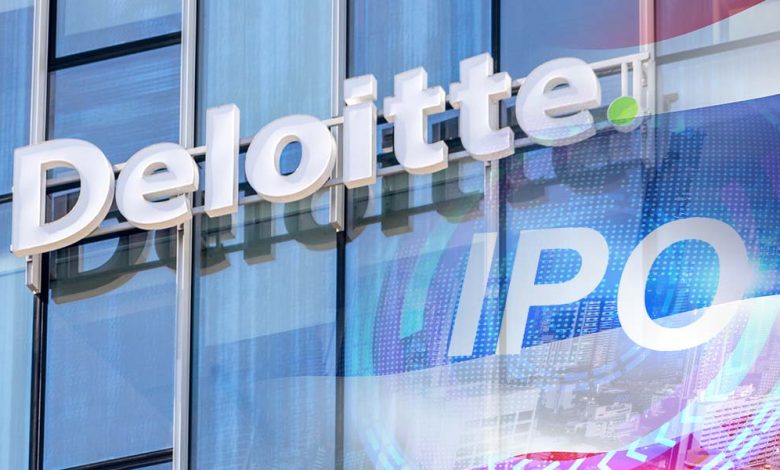Deloitte: Thailand’s IPO Market Lags Regional Peers as Political Uncertainty Weighs on Investor Confidence

Deloitte’s latest report indicates that Thailand’s Initial Public Offering (IPO) capital market remained subdued this year, despite a regional rebound across Southeast Asia.
Thailand has seen a series of small IPOs so far this year, with the exception of Mr. DIY Holding (Thailand) Public Company Limited (SET: MRDIYT), which raised IPO funds of US$174 million. Market performance in Thailand has been weighed down by domestic political uncertainty, high household debt, international market volatility, and changes to fundraising regulations.
According to Deloitte’s report, the Southeast Asia region saw 102 IPOs across the six bourses in the first 10.5 months of 2025 (up to November 15) raising approximately US$5.6 billion. Total IPO proceeds in the region have grown by 53% despite a decline in the number of listings, driven by larger deals, shifting sector dynamics, and strong market performances in Singapore, Vietnam, Malaysia, and Indonesia.
A boost in higher-value listings in the real estate, financial services and consumer sectors has been the primary driver of the increase in total IPO proceeds in 2025. For comparison, US$3.7 billion was raised across 136 IPOs in 2024 and US$5.8 billion was raised across 163 IPOs in 2023.
The real estate sector has dominated, accounting for 33% of IPO proceeds, followed by energy & resources and finance sectors. Industrial sectors linked to mobility and energy infrastructure are gaining traction amid supply chain reshoring. Health care and technology offerings have also drawn substantial investor attention, supported by PE and institutional backers.
Ms. Wilasinee Krishnamra, Capital Markets Services Partner, Deloitte Thailand says Thailand can draw lessons from regional peers to improve its IPO outlook for 2026.
“Thailand’s more muted IPO performance this year shows that structural challenges have weighed more heavily on sentiment than in neighbouring markets. While regional peers have benefited from clearer listing pathways and proactive reforms, Thailand is beginning to move in the same direction. Regulatory initiatives such as the Thai Capital Market Attractiveness programme, the JUMP+ project, and the SET’s efforts to simplify listing procedures will gradually strengthen market confidence and improve competitiveness of the Thai bourse. With continued regulatory momentum and greater macroeconomic stability, we anticipate Thailand’s IPO pipeline to regain momentum in 2026.”
It is noticeable that the foreign inflows have slowed in Thailand as SET Index remains underperform most of the regional peers. Ms. Wilasinee notes that the IPO market in Thailand has lost its attractiveness in recent years, resulting from several factors: political instability, slowing economy, global geopolitics, structural issues and under returns of Thai stocks. The sentiment has dropped, evidently by some sizable companies deterring the IPO launching process for better economic timing for their valuation.
She adds that foreign investors are seeking specific business sectors with strong growth potential. However, the Thai IPO market does not house any of the new business favouring tech-driven growth, which is the ongoing trend. Additionally, volatility and declining liquidity in the Thai market has separated it from neighbouring markets that have captured investors’ confidence with regulatory and market reform, attracting both domestic and international investors.
As for the neighbour markets, Singapore tops Southeast Asia’s IPO market by proceeds, with nine deals raising US$1.6 billion in the first 10.5 months of the year. This was driven by two major REIT listings – NTT DC REIT and Centurion Accommodation REIT – as regulatory and market reforms, alongside a lower interest rate environment, boosted market sentiment. Fuelled by these blockbuster listings, each raising more than US$500 million and collectively accounting for 88% of total funds raised, Singapore’s IPO market saw its proceeds surge to the highest since 2019.
Malaysia leads the pack in terms of the number of IPOs, with 48 IPOs raising US$1.1 billion, mainly through the ACE Market. Despite an overall decrease in key metrics (total IPO funds raised, IPO market capitalisation and number of IPOs), Malaysia is on track to meet its target of 60 IPOs by the end of the year. This is driven by sustained investor confidence and a strong pipeline of companies seeking to raise capital on the stock exchanges.
In Indonesia, 24 IPOs were recorded with US$921 million raised, with an increasing focus on higher-value offerings relative to deal count. The energy and resources sector led the way in terms of funds raised, with IPO activity spanning companies involved in oil and gas, renewable energy, and mining support services. This was driven by the listings of PT Merdeka Gold Resource TBK and PT Chandra Data Investasi Tbk, which raised US$279 million and US$144 million respectively.
Southeast Asian IPO markets grew across varied trajectories over the first 10.5 months of 2025. Notably, private equity-backed listings emerged as a catalyst across the region, sustaining steady capital inflows and attracting strong investor interest. Looking ahead to the coming year, Deloitte anticipates that investor appetite will remain healthy, sustained by the continued emergence of new market opportunities.






